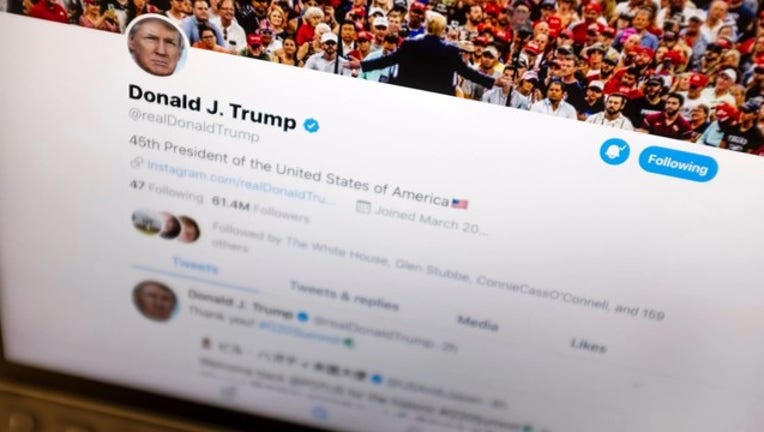Politicians' tweets could get slapped with warning labels

Donald Trump on Twitter.
SAN FRANCISCO (AP) - Presidents and other world leaders and political figures who use Twitter to threaten or abuse others could find their tweets slapped with warning labels.
The new policy, announced by the company on Thursday, comes amid complaints from activists and others that President Donald Trump has gotten a free pass from Twitter to attack his enemies in ways they say could lead to violence.
From now on, tweets that Twitter deems to involve matters of public interest, but which violate the service's rules, will be obscured by a warning explaining the violation and Twitter's reasons for publishing it anyway. Users will have to tap through the warning to see the underlying message.
Twitter said the policy applies to all government officials, candidates and similar public figures with more than 100,000 followers.
The new stance could fuel additional Trumpian ire toward social media. The president routinely complains, without evidence, that social media sites are biased against him and other conservatives.
Twitter's rules prohibit threatening violence against a person or group, engaging in "targeted harassment of someone," or inciting others to do so, such as wishing a person is harmed. It prohibits hate speech against a group based on race, ethnicity, gender or other categories, and disallows the promoting of terrorism.
The company has long exempted public figures from many of those rules, contending that publishing controversial tweets from politicians encourages discussion and helps hold leaders accountable .
But there have been longstanding calls to remove Trump from the service for what activists and others have said is abusive and threatening behavior.
Some activists complained this week after the president posted that an attack by Iran "will be met with great and overwhelming force. In some areas, overwhelming will mean obliteration." Trump has also tweeted a video of himself beating up a man with a CNN logo replacing his head and retweeted seemingly faked, inflammatory anti-Muslim videos.
Other politicians could likewise run afoul of the new policy.
In 2018, French prosecutors filed preliminary charges against far-right French politician Marine Le Pen for tweeting brutal images of Islamic State violence. Twitter rules prohibit material "that is excessively gory."
And in March, Brazilian President Jair Bolsonaro stirred outrage by sharing a video on Twitter that showed a man urinating on the head of another man during a Carnival party.
Insults and mockery fall into a gray area. Calling someone a "lowlife, a "dog" or a "stone cold LOSER," as Trump has done, may not in itself be a violation. But Twitter does ban "targeted harassment," and repeated insults against someone might count.
Twitter's new policy doesn't apply to past tweets.
Twitter said it is still possible for a government official or other figure to tweet something so egregious that it warrants removal. A direct threat of violence against an individual, for instance, would qualify.
The company said warning-label decisions will be made by a group that includes members of its trust and safety, legal and public policy teams, as well as employees in the regions where particular tweets originate.
When a tweet gets such a notice placed on it, Twitter said it will not appear in the site's "safe search" mode, notifications tab, the explore section and other places Twitter promotes or highlights tweets.

